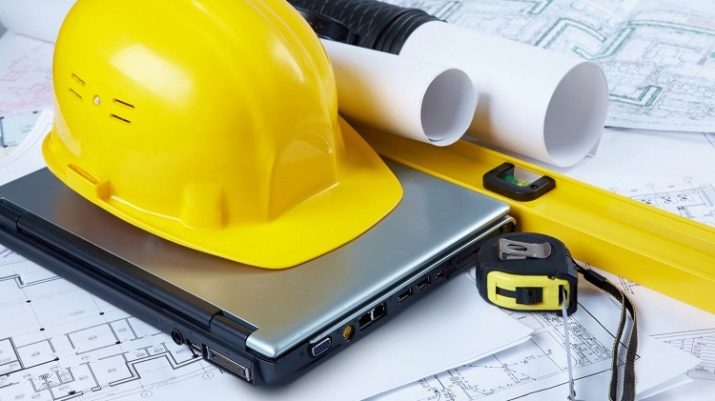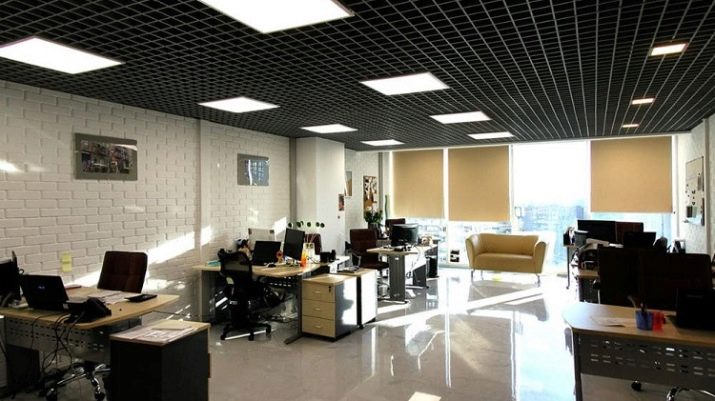Who is a civil engineer and what does he do?

Not all people fully understand who a civil engineer is and what he does, what his place of work is. It is worth paying attention to the duties of the VET in construction and the duties of the construction control engineer, to the salary and job description. If you are firmly decided to connect your life with this profession, you will also need to deal with the nuances of training.
Description of the profession
The main task of the civil engineer is to coordinate the various construction activities. It is natural that it is needed not when building a private house, but when working on a larger scale. It is on such a specialist that the definition of the budget and the recruitment of performers for various positions depend. The last point inevitably suggests that this is also a quality specialist. His specialization belongs to the category of "human technology".
Civil engineers are always busy and rarely have downtime. It is considered to be one of the most versatile and interesting building specializations. It closely merges with geodesy, as evidenced by the range of disciplines being mastered. Such a position can only be held by self-confident people who will become team leaders and make important decisions.
It is also worth noting that you will constantly have to work with documents and very scrupulously follow the rules for their preparation.

Speaking about the pros and cons, it must be pointed out that the civil engineer:
- always in demand;
- can work both in the city and outside it;
- does not directly engage in physical labor;
- can be deservedly proud of the creative nature of his work and personally observe the result;
- receives a relatively good income.
But at the same time:
- the working day is not always standardized;
- sometimes for work you have to go very far, even sometimes to remote places;
- the responsibility is very great;
- there are strict standards that must be impeccably observed;
- Customers and contractors can sometimes have conflicting requirements;
- Problems can be created by the indiscipline of the performers or other surprises during construction.

Who can work?
A civil engineer can apply for a job as one of the following professionals.
Engineer-laboratory assistant of a road-building laboratory
This is a slightly different specialization. Those holding such a position can control not only construction, but also repair and restoration of highways. It is they who control that the coating of a strictly defined thickness and quality is applied, and if this is not the case, they immediately raise the alarm. The laboratory can be stationary and mobile. This determines the number of examinations that can be carried out, their complexity and accuracy.
In some cases, technologists assess the deterioration of the canvas on the track and say whether it needs to be repaired or not.
Shipbuilding engineer
Such specialists are engaged in the field of:
- design;
- construction;
- construction control;
- expert research of sea and river vessels, their separate parts, equipment and auxiliary floating facilities.
It is their efforts and diligence that determine:
- what the courts will look like;
- what will be their carrying capacity, speed and other characteristics;
- how efficiently and safely the ship will be used;
- whether sailors and / or passengers will be comfortable there.

Engineer surveyor
Basically, such employees are engaged in determining terrain levels and measuring elevation differences. Their activities are carried out in a variety of conditions, and sometimes they have to walk many kilometers through difficult terrain, measuring and analyzing the measurement results. In general, surveying engineers answer 4 main questions:
- is the area suitable for building in general;
- is it possible to build something specific there;
- what measures need to be taken to eliminate negative aspects of the relief;
- how expensive and difficult it will be to carry out such preparatory work.
Design engineer
The main activity of a design engineer is the preparation of architectural and executive drawings. It is he who will develop schemes for water supply and sewerage, electrical infrastructure. Even the most ordinary-looking building could not have appeared without the participation of design engineers. They constantly interact with architects and designers in order to obtain not only a fully functional and comfortable, but also harmoniously beautiful object.
Other
A civil engineer for technical construction is mainly engaged in the construction of industrial, energy, transport and infrastructure facilities. The shipbuilder, as mentioned above, works with the goal of obtaining first-class ships and vessels that will fulfill their task in any conditions. There is no separate specialization in the field of landscape gardening. Such functions are performed along the way by general construction engineers or leading engineers of gardening and park management. There is also an engineer for the construction of railways and communications.
Such a professional is able to design and organize a structure:
- railways;
- transport interchanges;
- bridges and tunnels;
- auxiliary structures for transport communications.

Job description
The hiring and firing of civil engineers is made by the decision of the head of the organization. Only in exceptional cases and with a very large size of the organization, this function can be assigned to the deputy head. Most often, subordination to chief engineers is provided, optionally to architects. Chief Engineers may temporarily appoint an employee to replace a retired civil engineer. But attention should be paid to the functionality of such specialists.
Responsibilities
The main functions of civil engineers are:
- elaboration and approval of design solutions;
- elaboration of work schedules, adjusting them as necessary;
- coordination of current changes with contractors, customers and government agencies;
- proposal of measures to improve construction activities;
- routine inspections of facilities under construction and repair (independently or in cooperation with other people);
- tracking current trends in the construction industry.
But even all this, as well as the preparation of as-built documentation that would suit the chief engineer and customers, does not exhaust the functions performed. Additionally, you will have to:
- develop estimates in accordance with the established requirements and forms of maintenance;
- prepare technical specifications for third-party contractors (external contractors);
- accept (together with other specialists) finished objects;
- help the company prepare for tenders;
- comply with technical and fire safety standards.

Knowledge and skills
The key knowledge of civil engineers is:
- understanding of the laws and regulations in this area;
- standards for work with technical and project documentation;
- parameters of materials and technical structures;
- features of weather conditions and other factors affecting the construction, operation of buildings;
- fire and electrical safety requirements;
- safety requirements in a particular industrial area;
- criteria for evaluating the work performed and the degree of their completion.
The professional standard for an engineer of the capital construction department implies the following professional skills:
- collection and storage of special documentation;
- preparation of initial data for design;
- the ability to estimate the amount of work;
- readiness to form proposals for contractors and subcontractors;
- proficiency in mathematics and physics at a high level;
- the ability to read maps, plans and diagrams;
- ability to work with computer-aided design systems.

A responsibility
A civil engineer will be responsible for:
- improper fulfillment or complete failure to fulfill their obligations arising from job descriptions, contracts and regulations;
- violation of the requirements prescribed by civil, administrative and criminal legislation;
- causing material damage to your organization, customers, contractors, other persons and organizations;
- violation of trade secrets.
Rights
The civil engineer has the following powers:
- participate in the discussion of the prepared documents, regulations and other decisions of the organization's management;
- make suggestions that will improve work, get a more attractive result with a minimum expenditure of time and money;
- to notify managers and other interested parties about revealed violations within the limits of their authority;
- to establish the reasons why the work schedule was disrupted, its quality was violated, or other shortcomings occurred;
- track the elimination of previously discovered deficiencies and problems, give instructions for each stage and nuance of improvements;
- make decisions that allow to carry out work efficiently in the event of a change in the composition of materials, adjustments in terms of time, a change in the size of the budget during construction, achieving the same constant quality of finished structures and their parts.
In ETKS, a close analogue of such professionals are VET employees in construction or construction supervision engineers. They are obliged to:
- carry out technical control in the interests of the customer;
- monitor the implementation of work plans;
- help develop more promising methods and patterns of work;
- participate in the development of new building materials;
- conduct technical acceptance of finished objects;
- take into account the completed construction and installation work and prepare final reporting documents on the basis of such materials;
- own the principles of labor protection and safety (since the optimization of the construction process to their detriment is not allowed).

Personal qualities
The specifics of the activities of civil engineers leaves an expressive imprint on their personality. Or rather, a person must initially have certain qualities in order to qualify for such a position. It is imperative to have an analytical mindset, otherwise it will be impossible to prepare everything so scrupulously. Also important:
- excellent visual memory;
- advanced technical thinking;
- the ability to quickly switch between different objects and distribute your attention;
- the ability to work carefully, even if you have to deal with a monotonic function for a long time;
- accuracy.
Education
Even a general acquaintance with the specialty of a civil engineer shows that in order to obtain the necessary education, it is necessary to pass mainly physics and mathematics. However, each educational institution (and even individual faculties) has the right to establish its own norms and requirements, vary the subjects for admission and set a certain bar. These requirements may also change from year to year. Therefore, it is necessary every time to study the most relevant information on the official website and in other sources. A variety of institutions and universities provide the necessary training.
The choice of educational institution should be very responsible. In the Urals, you can go to study, for example, in:
- Nosov Magnitogorsk University;
- UrFU;
- SURGU;
- Ural University of Railways.

Large educational institutions that train civil engineers are located in the Russian capital. Among them stand out:
- Moscow Polytechnic University;
- RANEPA;
- RUDN University;
- Geological Prospecting University named after Ordzhonikidze;
- Agricultural Academy named after Timiryazev;
- Moscow University of Civil Engineering;
- MADI.
The chances are also very good in St. Petersburg. There, the necessary professional training and advanced training are able to offer:
- Polytechnic University named after Peter;
- mining University;
- University of Railway Transport.
If for some reason these educational institutions do not suit you, you can submit documents to:
- DFU;
- Trubilin Kuban Agrarian University;
- Ufa Petroleum Technical University;
- Far Eastern Transport University;
- Voronezh and Yugorsk Technical Universities;
- Kazan Research Technical University;
- Sibstrin;
- Technical University of Kaliningrad;
- OmSTU;
- State University of Orenburg.

Place of work
Although some of these specialists may even get a job in colleges and other educational institutions, where they will teach certain technical disciplines, this is far from the main option. Mostly civil engineers are employed by companies engaged in the construction and repair of various facilities. Some of them go to specialized design organizations. After a relatively simple retraining, you can become an architect.
Another quite possible area of application of their efforts can be expert and evaluative activities.
How much does he earn?
Despite a certain stagnation in the construction industry in Russia, the average salary of civil engineers can still stand out favorably against the general background. The more important the object, the more significant it is. At large construction sites of national importance (or relevant for several regions at once), such a specialist receives from 70 to 85 thousand rubles. True, getting to such a position is extremely difficult, it is customary to supervise all such projects from beginning to end, but they are rare. The least experienced employees can earn an income of 19-25 thousand rubles per month.
Civil engineers, having worked for 1 year or more, can already find a job with an income of up to 55-60 thousand rubles. The most experienced can be offered a rate of up to 100-200 thousand. Above average income is found in areas with difficult climates. For example, in the regions of the Far North, in Ust-Ilimsk and other places, a salary of 150 thousand is quite common.

Additional money can be paid for:
- experience in the construction of large industrial facilities;
- possession of specialized programs;
- knowledge of foreign languages.
In addition to direct payments, bonuses may be awarded based on the results of work. Additional bonuses are:
- catering by the employer;
- compensation for fuel and lubricants and depreciation of personal cars;
- transportation by enterprise transport;
- payment for cellular communication.
In Moscow, the situation is ambiguous. The city is actively developing, but the incomes of civil engineers are very different. The average level is from 62,000 to 80,000, the peak value is about 160,000. But the national average income of such specialists is 40-47 thousand rubles.
Abroad, in economically developed countries, it corresponds either to the level of the most advanced domestic specialists (in Germany), or 1.5-2 times higher (in the USA).









